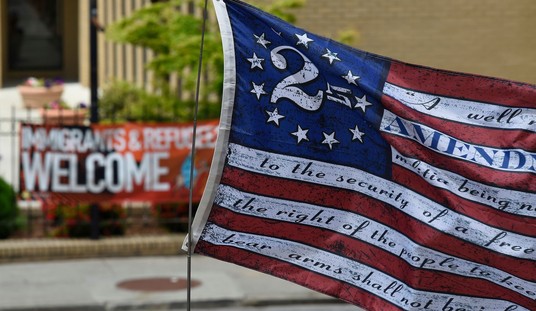[AUTHOR’S NOTE: This week in American military history will return next week. Meantime, here are some personal musings about military anniversaries in June.]
Every June, we Marines are reminded of a fateful day in 1918 wherein our reputation in the modern era was enhanced by some unbelievable shooting, a bit of tooth-to-eyeball combat, and a few Marine-friendly reporters on the Western Front in France. For on June 6 of that year, Marines attacked and destroyed Imperial German Army positions during the Battle of Belleau Wood, an old French hunting preserve near Chateau-Thierry, in a grisly close-quarters slugfest, after which the Germans – convinced the Marines were special American “shock troops” – nicknamed their foes, teufelhunden, devil dogs.
What happened that day became the stuff of legend, or rather lore since the heroics of June 6, 1918 were confirmed by several sources, not the least of which was the enemy.
At one point during the fighting, Gunnery Sgt. Dan Daly – a two-time Medal of Honor recipient – dashed out in front of his Marines and shouted to them: “Come on you sons of bitches! Do you want to live forever?!”
A German after-action report, read: “The Marines are considered a sort of elite Corps designed to go into action outside the United States. The high percentage of marksmen, sharpshooters, and expert riflemen, as perceived among our prisoners, allows a conclusion to be drawn as to the quality of the training in rifle marksmanship that the Marines receive. The prisoners are mostly members of the better class, and they consider their membership in the Marine Corps to be something of an honor. They proudly resent any attempts to place their regiments on a par with other infantry regiments.”
Twenty-six years – to the day – later, just after 2 a.m., Army paratroopers, members of the soon-to-be famous 82nd and 101st airborne divisions, as well as British airborne forces, began jumping behind German lines in the opening hours of the great Allied invasion of Normandy, also in France.
The paratroopers were described by German propagandists as being nothing more than gangsters and cutthroats who had learned to handle a parachute. In reality, they were young men fresh off the farm – and not far removed from their high school football fields – who had volunteered for something that not even their commanders were convinced would work on a large scale.
Following the paratroopers were waves of gliderborne forces.
Offshore, thousands of warships, freighters, and supporting vessels were crossing the English Channel and moving into position off the French coast.
In less than five hours, the first seaborne assault waves of the initial 175,000-man Allied amphibious force began storming the beaches along a 50 to 60-mile front in the Bay of Seine between Caen and the Cherbourg peninsula. Supporting the invasion force were thousands of Allied warplanes.
Like Belleau Wood for the Marines, the invasion of Normandy made famous – for the Army – the pioneering U.S. Airborne divisions, not to mention the tens-of-thousands of seaborne soldiers, including Rangers, who kicked in the door of Hitler’s Fortress Europe.
June is also a special military month for us here in South Carolina.
For on June 28, 1776, the “first decisive victory of American forces over the British Navy” was achieved by S.C. artillerists during the American Revolution.
That day, the garrison at Fort Sullivan – today Fort Moultrie on Sullivan’s Island in Charleston harbor, under the command of militia Col. William Moultrie – repulsed Royal Navy forces under the command of Admiral Sir Peter Parker.
The 12-plus hour battle began around 9 a.m. when Parker’s ships opened fire on the fort: many of the British shells sinking harmlessly into the soft palmetto logs of which the fort is constructed. The ships, on the other hand, some of which run aground on the harbor’s shoals were constructed of oak, which Moultrie’s artillerists quickly shatter sending deadly splinters into the unfortunate British crews.
Moultrie was destined to become a major general in the Continental Army and a South Carolina governor, and afterwards, S.C. would forever be known as the “Palmetto State.”
Incidentally, this author’s five-times great grandfather, Capt. Thomas Woodward – commanding a company of S.C. Rangers on Moultrie’s extreme left – helped thwart an attempt by Royal Marines to land on Sullivan’s Island. Woodward survived the battle, but was killed a few years later while in pursuit of a band of Loyalist horsemen. According to reports, he was literally blown out of his saddle by a blast of enemy buckshot. An obelisk to Woodward can be seen from the highway between Simpson and Winnsboro, S.C.








Join the conversation as a VIP Member